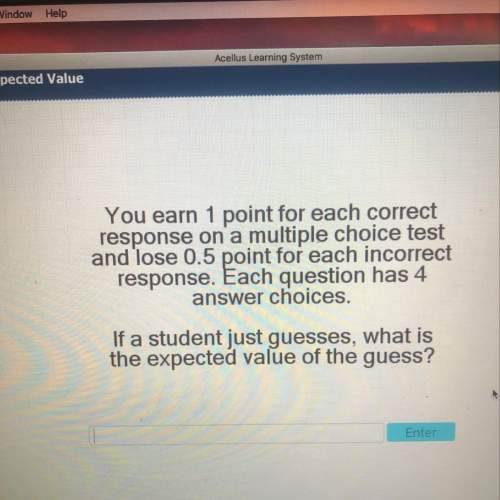
Mathematics, 16.11.2020 22:20 trinityhayes347
When would you expect the experimental probability of an event to be closest to its theoretical probability?
a. When the results of 10 trials were used in C. When the results of 100 trials were used in
calculating the theoretical probability
calculating the experimental probability
b. When the results of 10 trials were used in d. None of the above, because the experimental
calculating the experimental probability probability is unrelated to the theoretical
probability

Answers: 2


Other questions on the subject: Mathematics

Mathematics, 21.06.2019 19:00, emmagossett2002
Aflower has 26 chromosomes. to create a new flower, how many chromosomes would a sperm cell have? what is this process called? part 2: within a flower cell that has 26 chromosomes, how many chromosomes would a cell that is created within the stem of a flower as it grows, have? what is this process called?
Answers: 1

Mathematics, 21.06.2019 19:30, ray2220
The position of a moving particle is given by the position function: f(t)=-9t-t^2-0.2t^3+0.1t^4 a. at what time does the particle reverse direction? b. when is the displacement positive? (round one decimal place and answer in interval notation) c. when is the displacement negative? (round one decimal place and answer in interval notation) d. when is the particle’s acceleration positive? (round one decimal place and answer in interval notation) e. when is the particle’s acceleration negative? (round one decimal place and answer in interval notation)
Answers: 3

You know the right answer?
When would you expect the experimental probability of an event to be closest to its theoretical prob...
Questions in other subjects:










English, 01.05.2021 19:40




